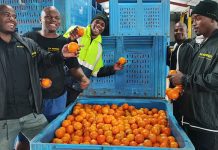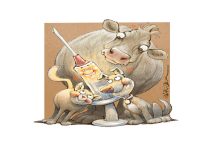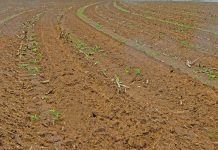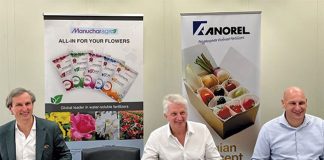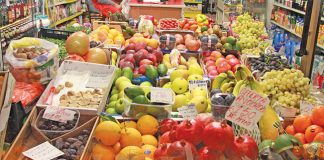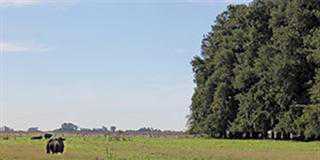
Photo: Octavia Avesca Spandiel
Around 40km from Gqeberha, adjacent to Van Staden’s Bridge and bordering the Garden Route and Baviaanskloof World Heritage Site, lies Crossways Farm Village.
This unique blend of agribusiness and sustainable living is the brainchild of landscape architect and property developer Chris Mulder. Officially launched on 19 November 2010, this project embodies a new paradigm in rural development.
In 2019, agribusiness person David Osborne joined Mulder as a major shareholder in
Crossways Farm Village, which has been proclaimed a ‘new rural town’. The developer provides all infrastructure and bulk services, such as roads, water, sewerage, power, fibre optics, and security.
Mulder describes Crossways Farm Village as “a harmonious blend of conservation, agriculture and sustainable living”.
Spanning 520ha, it is divided into three equal and sustainable nodes: one dedicated to conservation, another to urban agriculture and a working dairy farm, and the third to residential living, encompassing 732 plots of land, communal and commercial spaces, industrial precincts, and recreational grounds.
This division ensures a balanced approach to development while preserving the natural environment.
“From the very beginning, sustainability was our guiding principle. We wanted to create a place where people could live in harmony with nature, where nothing is wasted and resources are renewable,” says Mulder.
“This is the new ruralism. It’s living the way our grandparents did, from farm to hand, with fresh produce grown almost on your doorstep. It’s organic, raw, and pure.” Their slogan captures this: Don’t get away from it all – get back to it all.
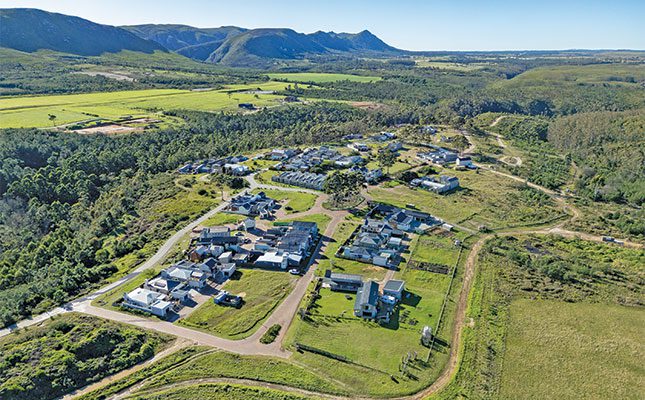
Embracing the new ruralism
Mulder adds: “Crossways Farm Village exemplifies the concept of the new ruralism, where community living is in sync with nature. The principles guiding this development echo the simplicity of past generations: farm-to-table living with fresh, organic produce grown locally.
We nurture the soil and uphold honest labour, fostering a sustainable and self-sufficient lifestyle. The community thrives on renewable resources and waste-free practices, embodying a holistic approach to modern rural living.
“We are creating a community that lives in balance with nature. It’s about going back to basics, valuing the land, and working with it rather than against it. Our residents enjoy fresh produce grown right here, and our dairy farm provides high-quality milk that’s processed and sold locally.”
A working dairy farm
At the heart of the farm village is its working dairy farm, a symbol of the community’s commitment to agriculture and sustainability. The farm operates with about 450 cows, providing milk to support the local community and the broader market.
“Our dairy farm is integral to our vision. It not only provides fresh milk for our residents but also supports local farmers.
“We’ve created a system where the cows are well cared for, the land is sustainably managed, and the produce is of the highest quality,” says Mulder.
The dairy farmland is rented out to their immediate neighbours, Holstein breeders Puttergill Farming, and the farmland also serves as an educational resource, offering insights into sustainable farming practices and the importance of animal welfare.
Visitors can see at first hand how the cows are cared for, from feeding and milking to veterinary care and pasture management.
Mulder says the cows are more than just livestock; they are part of the community. “We ensure they are well-fed, healthy, and happy. This not only leads to better milk production but also reflects our commitment to ethical and sustainable farming practices.”

Community integration and development
The integration of the nearby Thornhill community, home to 3 000 individuals, is an integral part of the Crossways Farm Village concept. The developers have set up a community trust to foster job creation, poverty alleviation, training, and food security.
The developer contributes 2,5% of every sale to the community trust. This trust ensures that the benefits of the village’s growth extend beyond its borders, creating a symbiotic relationship between Crossways and the Thornhill community.
“We believe in giving back to the community,” says Mulder.
“The community trust is designed to support Thornhill in meaningful ways, whether it’s through job opportunities, educational programmes, or healthcare initiatives. It’s about creating a partnership that benefits everyone.”
The infrastructure is designed as labour-intensively as possible in order to create as many jobs as possible for Thornhill small businesses.
The trust is further funded through a unique model embedded in every title deed, where 0,5% of every future property sale by an owner goes directly into the community fund.
This ensures a steady stream of income for the community trust that can be used for various projects, from infrastructure development to social programmes, funding of sports teams, students, and community events.
“We’ve embedded this model into every property transaction. When someone buys a property here, they are not just investing in their future; they are also contributing to the community’s well-being. It’s a vision that goes beyond the expected and sets a new standard for rural development,” he says.
The village market
Adding to the village’s charm is the Crossways Village Market, a bustling hub where quality craft stalls and farm-fresh produce attract locals and visitors alike.
This child- and dog-friendly market offers a vibrant space for the community to gather, enjoy live music and indulge in delicious food, reinforcing the village’s ethos of sustainability and community spirit.
“Our market is a celebration of local talent and produce. It’s a place where people can come together, support local artisans, and enjoy the fruits of our labour,” says Mulder.
The market also serves as an educational platform, showcasing the benefits of sustainable living and the importance of supporting local economies.
Challenges and triumphs
The journey to establish Crossways Farm Village was not without its challenges. The developers had to navigate stringent regulations and the realities of creating a “self-sustaining municipality”.
Mulder’s background in site analysis, terrain analysis and environmental planning played a crucial role in identifying high-potential agricultural zones and conservation-worthy areas. Careful planning has ensured that the village maintains its agricultural roots while fostering human settlement.
“One of the biggest challenges was obtaining the necessary approvals and ensuring that our development was sustainable from the ground up. We had to carefully analyse the land, identify areas suitable for agriculture and conservation, and plan our infrastructure accordingly.
“It was a complex process, but it was essential to achieving our vision,“ he says.
The developers also faced hurdles in securing funding and attracting investors who shared
their commitment to sustainability. However, their perseverance paid off and today, Crossways Farm Village stands as a dedication to and beacon of hope.
“Building a project like this requires a lot of patience and determination. We had to convince people of the value of sustainable living and the potential of new ruralism. It wasn’t easy, but seeing the community thrive and grow makes it all worth it,” says Mulder.
Future prospects
The vision for Crossways Farm Village continues to evolve. Plans include a village centre with residential units, medical facilities and light industry zones for factories, warehousing, and storage.
The focus remains on creating a self-sufficient community that values sustainability, quality of life, and economic opportunity.
“We are constantly looking for ways to improve and expand our community. Our goal is to create a village that meets the needs of its residents while remaining true to our principles of sustainability and community integration. The village centre will be a focal point for social and economic activity, providing essential services and creating job opportunities,” he says.
Mulder adds: “We are committed to ensuring that Crossways Farm Village remains a model of sustainable development. Our plans for the future include expanding our agricultural activities, enhancing our conservation efforts, and continuing to support the Thornhill community.
“It’s a long-term vision that requires ongoing dedication and innovation.”
Email [email protected] or visit crossways.co.za.



